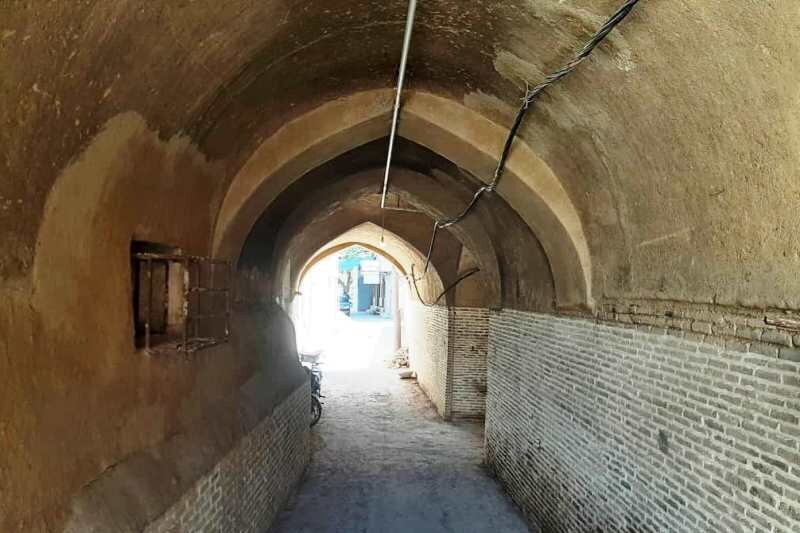Historical sabat restored to former state

TEHRAN – A historical sabat in the southwestern city of Dezful, Khuzestan province, was restored to its former state, an official with Dezful Municipality announced on Friday.
The restoration project aimed at eliminating threats of full destruction of the time-honored structure as well as strengthening its walls and rooftop using cob material, Iman Hassani said, CHTN reported.
A budget of one billion rials ($23,800 at the official exchange rate of 42,000 rials per dollar) was allocated to the project, the official added.
Sabat is an arched structure built between the opposite buildings on both sides of a narrow street in tropical and desert areas and it creates shade and a cool place for passers-by. Due to its semi-covered nature, this structure creates air blinds in summer, which cools the air inside sabat and in winter makes the air warmer.
Khuzestan is home to three UNESCO World Heritage sites of Susa, Tchogha Zanbil, and Shushtar Historical Hydraulic System yet it is a region of raw beauty where its visitors could spend weeks exploring. The province is also a cradle for handicrafts and arts whose crafters inherited from their preceding generations.
Lying at the head of the Persian Gulf and bordering Iraq on the west, Khuzestan was settled about 6000 BC by a people with affinities to the Sumerians, who came from the Zagros Mountains region. Urban centers appeared there nearly contemporaneously with the first cities in Mesopotamia in the 4th millennium. Khuzestan, according to Encyclopedia Britannica, came to constitute the heart of the Elamite kingdom, with Susa as its capital.
ABU/AFM
Leave a Comment